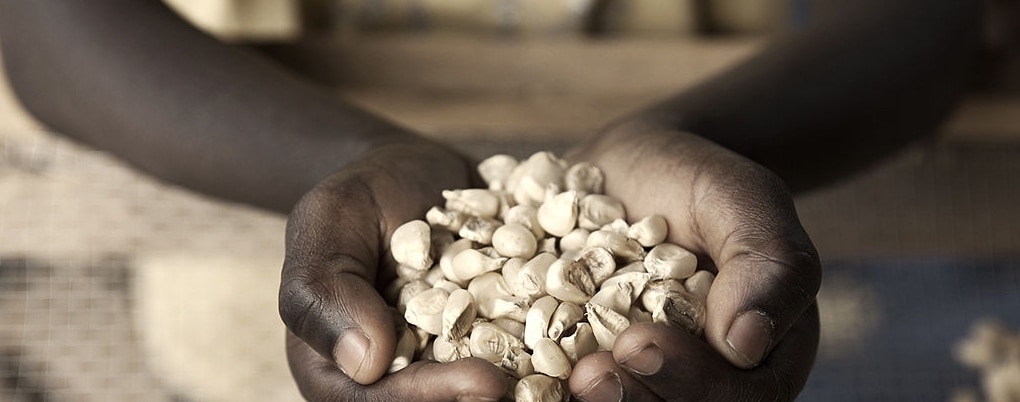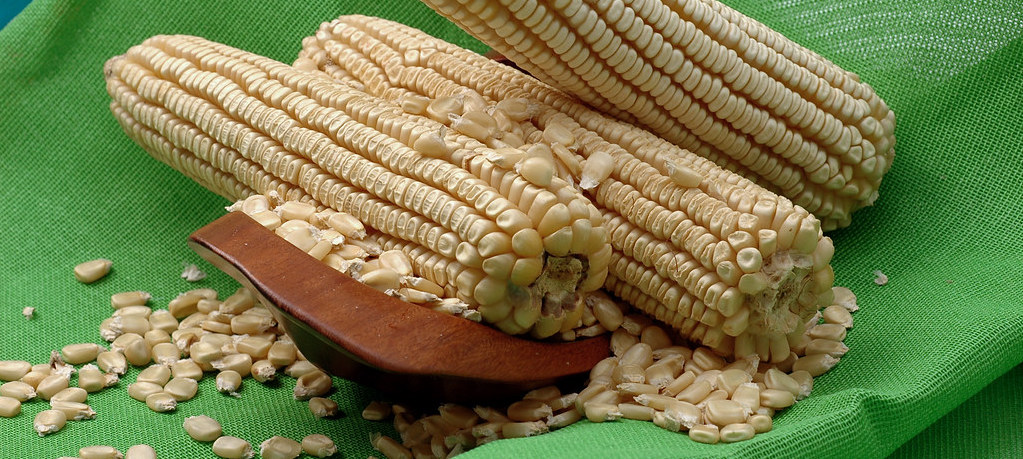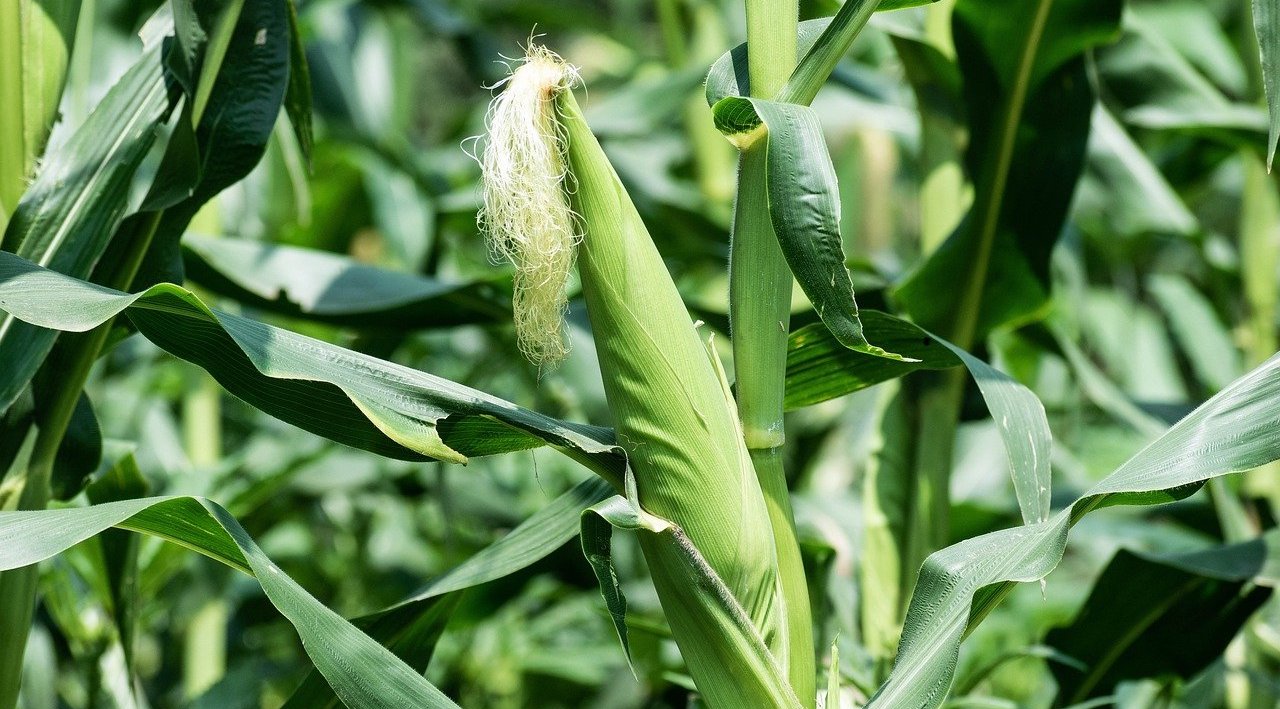Benjamin Mbelezi, a farmer in the Eastern Region of Kenya. Photo: CGA
Benjamin Mbelezi, a 67-year-old farmer from Makueni, a rural Eastern part of Kenya takes a walk in his 1-acre maize farm in disbelief. He says he will never regret the path he took because for the first time, his maize farm yielded beyond his expectation. Thanks to Regenerative Agriculture (RA) practices and technologies he applied. Mbelezi worked in the Ministry of Water for a period of 30 years and retired in 2005. After retiring, he joined National Construction Authority (NCA) to offer water and construction services but the demand for his services were low. Mbelezi resolved to go back to the village and began to farm in his 1-acre piece of land to provide income for his struggling family that depended on him for food and other basic necessities.
Smallholder farmers play an important role in the Kenyan economy, as agriculture is a major driver. When Mbelezi decided to start farming in his village, there were limited extension services, this resulted to poor farming methods and low yields due to lack of access to modern farming practices to boost the lands productivity. He opted to learn from social media platforms and the Internet.
“Extension officers are very few, so I depended on WhatsApp and the Internet to find out better farming methods” says Mbelezi.
Mr. Mbelezi’s low yields in his early crop production practice was not out of the ordinary. Smallholder farmers in the semi-arid agro-ecological zone often experience poor or erratic yields due to low quality seeds and lack of information about best farming practices and technologies. When Mbelezi heard about regenerative agriculture project, he knew he will get some help in shaping up his farm. After joining the project, he learned new farming techniques for crop production.
To help expand opportunities for the smallholder farmers like Mbelezi, AGRA in partnership with Cereal Growers Association (CGA), the County Government of Makueni and other agri-value chain actors, joined forces through a public-private partnership. Together, they have equipped 114 Village Based Advisors (VBA) with knowledge and skills to offer training to smallholder farmers on Regenerative Agriculture and Climate Smart Agriculture Practices and Technologies that improve crop production, increase income, create market linkages and build stronger and more resilient communities.
In 2020, CGA through a Village Based Advisor called Silvania Monthe trained Mbelezi in Regenerative Agriculture and Climate Smart Agriculture practices and technologies such as; minimum tillage, cover cropping, intercropping, crop rotation, use of organic mulch, agro forestry, drought tolerant crop, certified seeds and soil and water conservation structures such as terraces and basins. He was also trained on post-harvest handling and management skills.
Using what he learned from the mother demo and provision of certified seeds, Mbelezi went back to his farm and set up two baby demo plots measuring 10 by 15 metres each. In one plot, Mbelezi adopted Regenerative Agriculture practice and in the other, he did not use the RA agronomic practices. Mbelezi noted a big difference in the yields from the two plots.
“Using the skills, knowledge and the instructions given to me by VBA, the yields I got where I used RA practices were about four times more than where I planted without using RA practices” says Mbelezi.
The Regenerative Agriculture farming technique is a dynamic and holistic way of farming that involves all the principals of permaculture and organic farming, which include; minimum tillage, use of cover crops, crop rotation, terracing to reduce soil erosion, heavy mulching to keep the soils moist, use of basins to preserve soil moisture and the use of composted manure to give the topsoil the texture of a fertile arable land.
Mbelezi also began to grow in his 1-acre farm using improved seed variety and practiced four RA practices namely; minimum tillage, use of organic manure, intercropping and planting basins and zai pits. As a result, he noted the plants were healthier and grew to a larger size, and was easier to weed and harvest.
“What we were trained by Monthe, the (VBA) is very tedious, laborious and involving but the end result is great, unaenda nyumbani ukiwa na furaha mingi sana kwa sababu mazao unapata ni mengi mno (Swahili for: you go home very happy because the harvest you get is plenty‘),” says Mbelezi.
“Previously, I used to get money from my own pocket to farm, right now I get the income from my farm,” Mbelezi added.
Mbelezi is also intercropping maize with beans and green grams. He was delighted with his harvest the previous season, where his yield nearly tripled.
“Before I started to use RA and CSA practices and technologies, I would only harvest 3 – 4 bags of maize from my 1-acre farm. The previous season I harvested 15 bags,” says Mbelezi.
“Through RA project, AGRA and CGA are helping smallholder farmers in Makueni County increase their earning potential through the latest farming techniques and linking them to markets to sell their crops through the use of the sustainable Village Based Advisor model – making them more economically resilient,” explained George Mabuka, CGA Project Manager
“We are proud to have income, we eat and sell some, there are certainly huge profits through farming using RA practices,” says Mbelezi
“I sold 7 bags of the yield at KES 28,000 and used the proceeds to buy certified seeds for the current season and the reminder for family use,” he added.
Regenerative Agriculture’s Impact:
Mbelezi’s experience reflects the impact that AGRA’s RA project has had in Makueni County, Eastern Kenya where it operates since July 2020:
- 14005 farmers have been trained by the VBAs on Regenerative Agriculture practices and CSA technologies
- 114 Village Based Advisors have received training on RA and CSA.
- 1746 kilograms of certified seeds have been made available to farmers through public private partnerships with seed companies for demonstration plots.
- 14,917 farmers mobilized and profiled of which 67 percent are women and 31 percent youth.
- 127 demonstrations plots have been established in the two seasons of the project lifeline.
- 101 tree nurseries, where over 6,000 tree seedlings were distributed to farmers to plant into their farms.
- 5 VBAs have started agrovets
- 6 aggregation stores have been started by the VBA’s
- 16 VBAs are agents of service providing companies
- 83 VBA’s have transacted a total value of KES 28,680, 832 and earned a commission of KES 4,586,110.
- 53 VBAs have aggregated and sold 412, 113 kgs of grains valued at KES 16094417 and earned a commission KES 833954
- 5283 Farmers are practicing Regenerative Agriculture
- 8 RA practices were promoted and practiced by farmers namely; Minimum soil disturbance, soil and water conservation structures, organic manure, mulching, intercropping, crop rotation, cover cropping, agroforestry.






